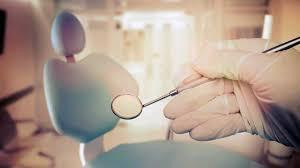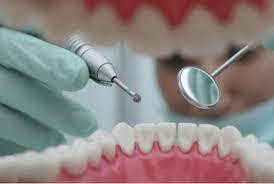An emergency tooth extraction is the removal of a tooth to relieve toothache, infection, or swelling in the mouth. If you have pain in your mouth that does not go away, you may need an emergency extraction if your dentist’s office is closed or if you can’t get into your dentist. When it comes to choosing to extract a tooth or not, there are several signs to help you decide if this procedure is necessary. Read more here about emergency tooth extraction, including what causes it and what you should do if your dentist recommends it.
Things to Consider in Dental Extraction Aftercare : We've all been there. While walking through an alleyway after a night out with friends, you're just minding your own business, when you get hit by a brick thrown from above by an unknown assailant. The pain is excruciating and your mouth begins to fill with blood as you rush yourself to emergency dental care at once! Well, while it's not quite that common, emergency dental extractions can happen at any time—and if they do happen to you or someone in your family, there are a few things you should know about how to take care of them properly following a dental extraction.
Why Do Emergency Dental Extractions Hurt So Much?
When a tooth is removed, it’s common to experience some degree of discomfort. Pain associated with dental extraction is similar to that experienced during normal teeth brushing and flossing. However, when nerves or blood vessels are affected, severe pain or bleeding may occur and additional care should be taken. A post-extraction visit to your dentist or oral surgeon for evaluation and proper follow-up care is important for optimal healing. If your mouth hurts after a tooth extraction, here are five signs you should seek emergency dental treatment as soon as possible
Aftercare
Emergency tooth extraction is no laughing matter. It can be a painful and traumatic experience, so it’s important to stay in good health after undergoing an emergency tooth extraction. Watch out for these five signs that you need to seek immediate dental attention following your procedure. See a dentist as soon as possible if you notice any of these symptoms!
How Long Will My Tooth Abscess Last?
Every abscess is different, but in general you should expect your abscess to last at least a few days. If it seems to get worse over time or doesn’t start improving after a few days, make an appointment with your dentist as soon as possible. In severe cases, an abscess can spread and damage more of your jaw—requiring extensive surgery and possibly leaving you without teeth. The longer you wait to address your tooth abscess, the more serious it could become.
How Much Should I Expect To Pay For An Emergency Dental Extraction?
You’ll want to call a dental clinic and talk to them about your specific situation. There are no one-size-fits-all answers when it comes to emergency tooth extraction pricing. In fact, you may be in for a bit of sticker shock depending on where you live, how many teeth have been affected, and what steps need to be taken next. These things can make a huge difference in your bill; but there are some ways you can reduce it.
Where Can I Get The Best Emergency Dental Care?
If you’re in pain after an emergency tooth extraction, you need to find a dentist who can get you in for an appointment as soon as possible. With millions of people living with untreated tooth decay, your best chance at avoiding further problems is to find a dental professional who understands that sometimes a simple filling isn’t enough. Look for a dentist who offers emergency services and accept walk-ins. If they don’t have time to see you that day, ask them to refer you to someone nearby who does. If your mouth needs immediate care, it shouldn’t take hours or days before that care is available.


Comments